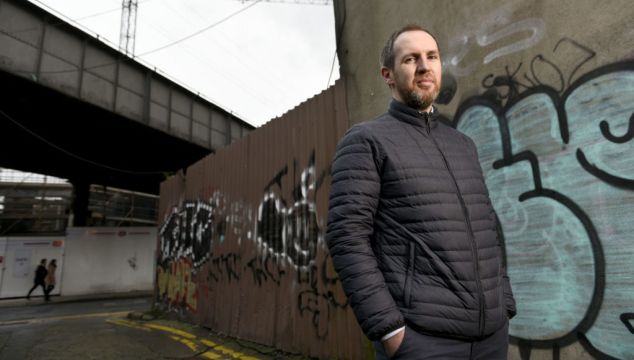The incoming chief exectuive of a housing and homeless charity has said a plan to drop developer levies needs conditions to be attached to ensure the measure does not drive up prices.
The Cabinet is expected to consider plans on Tuesday morning to scrap developer levies temporarily in order to accelerate the number of houses being built.
The state is expected to cover the cost of the income gained from the levy, used by local authorities to fund public infrastructure and facilities.
Francis Doherty, who takes over from Pat Doyle as chief executive of the Peter McVerry Trust on June 1st, said if developer levies were dropped temporarily to encourage a boost in housing supply, conditions could be attached.
“I think there’s probably an argument to be made that there needs to be some sort of quid pro quo arrangement, where if a developer is availing of exemptions on levies, then a certain percentage of this scheme has to be affordable, or has to be at a lower price than otherwise planned if the levies were in place,” he told the PA news agency on Monday.
“What we don’t want to do is to make every sort of project that a developer has on their books viable because it just drives up the price of land … if people are overpaying on the price of land, that’s the crux of the issue – it’s not the development levies.
“These are just, in a way, small matters at the edge of the core problem.”
Despite that, he said “huge progress” in housing policy has been made in the last couple of years, particularly in the increase in social housing delivery by approved housing bodies.
“I think we’re definitely going in the right direction, I think we just need to be careful that we don’t make too many interventions for the sake of the private markets, which actually has a negative consequence for the overall system.
“We don’t want to overheat it, we don’t want to drive up prices.”
He added: “It’s probably quite obvious for the last number of years that the private market is really providing for a smaller and smaller segment of the population. We can’t be too fixated on what their needs are and what their demands are.
“I think, realistically, we’re probably getting to a point where it’s local authorities and approved housing bodies that will be the largest suppliers of the social and affordable housing – or agencies like the Land Development Agency.
“So, we’re going to get to a point, perhaps, where the state and the agencies it’s funding in the social space are going to be delivering more homes per year than the private sector – and, probably not a bad thing, because at least we know we’re doing for the right reason.”
Mr Doherty has worked at the Peter McVerry Trust for 12 years, focusing on housing developments in more recent years.
Before that, he worked at a global union federation that represented workers in the garment industry and spent three years working in the European Parliament in Brussels.
Fr Peter McVerry, founder of the Peter McVerry Trust, said Mr Doherty would bring “great passion and commitment” to the role, upon the announcement of his appointment on Friday.
Speaking to PA, Mr Doherty said that although there has been huge progress in housing policy in recent years, more one-bedroom homes were needed to help stem rising homelessness.
Peter McVerry Trust is delighted to announce it has appointed Francis Doherty as its next CEO. Mr Doherty has worked with Peter McVerry Trust since 2012 and has held various areas of responsibility for the organisation during that time. Full statement: https://t.co/CWRrfKC5eN pic.twitter.com/sMxz4vgGST
— Peter McVerry Trust (@PMVTrust) April 24, 2023
He said that his focus in the role would be on bringing more one-bedroom homes into the system to ease pressure on emergency accommodation and to make stays in the charity’s emergency accommodation “as short as possible”.
When asked what was needed to solve the housing crisis, he said: “I think we really need to keep it simple.
“It’s about delivering the homes that are needed, not what are perhaps the most profitable homes to be delivered.
Waiting lists
“Obviously we need three and four bedroom homes, but in actual fact the type that we need most of is one-bedroom homes if we’re to tackle the social housing waiting lists and the homeless crisis.
“We can’t keep funding schemes that have a near total absence of one-bedroom homes, because we’re not meeting the greatest need if we keep doing that.”
On the winter eviction ban, he said the “disappointment” came from the lack of preparation for when the eviction ban ended, including the scheme that allows local authorities and tenants to buy properties when a landlord wants to sell.
“Now we’re in a bit of limbo, nobody really knows the exact details of how the schemes work, but we’re trying to do our best,” he said.
When asked about who is coming to the charity for help following the eviction ban being lifted, he said: “The cohort that are coming to us on the back of the notice-to-quits are by-and-large cases of people that are in employment that have never had an interaction with us or one of our sister organisations in the sector.
“It’s mostly people that have been renting for a long period of time, or they’ve been in the private rental market for many years, and now they’ve come to a point where they’re days or weeks away from being evicted, unable to secure anything, and they’re not sure what’s going to happen to them.
“We are seeing some people that investors or landlords are selling up small multi-unit developments – like a pre-63 building with six or seven flats in it – and some of those people would have been known by homeless services, they’ve gone into homeless HAP rental units and now suddenly the landlord is selling up and they’re staring at homeless once again.

“So we’re working on a pilot with some of the local authorities, the Housing Agency and the Department of Housing to deal with those cases. So that’s good, but the people that are contacting us are in the main people that haven’t ever needed us or contacted us before.”
Referencing a pledge by the Government in June 2021 to end homelessness by 2030, he said another aim would be to “change the narrative and the mood around homelessness” and to show success stories.
“Maybe six or seven local authorities in a few years don’t actually have any homelessness … and we don’t ever accept, like the healthcare system, that it’s a permanent crisis and we’ll always have it. That’s not something we’re going to accept.”







